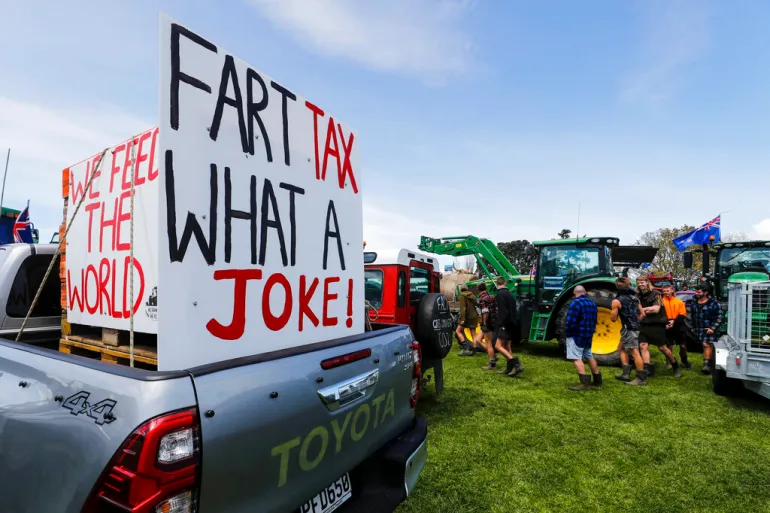New Zealand agricultural emissions tax proposal 'still stinks'
New Zealand's government further modifies a bill to tax carbon emissions from livestock amid pushback from a major farmer group.
-

New Zealand farmers' livelihood is threatened by the new legislative proposal (AP)
The contentious proposal to charge cattle emissions was modified by the New Zealand government on Wednesday, but a major farmers' group said it was still against the emissions reduction plan.
In an effort to combat climate change, New Zealand is preparing to implement a "world first" charge on methane and nitrous oxide emissions from the country's 26 million sheep and six million cows.
The proposed plan would require farmers to pay for the gas emissions produced by their livestock. The measures have provoked nationwide protests and outrage among New Zealand's agricultural community.
Farmers have urged the center-left administration of Prime Minister Jacinda Ardern to repeal the tax, which they claim would increase the price of food and endanger their livelihoods.
In addition to promising to maintain low emissions prices, the reforms announced on Wednesday include permitting farmers to make use of on-farm forestry to offset their carbon emissions.
In a statement, Ardern argued, "Our shared goal is supporting farmers to grow their exports, reduce emissions, and maintain our agricultural sector's international competitive edge," and then warned that "with or without the government's proposals, New Zealand needs to be at the front of the queue to stay competitive in a market that is demanding sustainably produced products."
Ardern expects that her cabinet will deliberate on the final price for the agricultural emissions scheme in the first half of 2023, with a five-year pricing plan set to begin in 2025.
Measures 'still stink'
The head of New Zealand's major agriculture advocacy group said the altered plans still stink and attacked the government's "unrealistic timelines".
The president of New Zealand's Federated Farmers, Andrew Hoggard, noted in a statement that "everyone else is talking about food security and working with farmers to develop practical on-farm solutions," adding that "only New Zealand is taking the punitive step of taxing efficient, unsubsidized food production, even if it comes at huge costs."
Hoggard accused Ardern, saying that while the PM wants "an emission reduction system set up that lasts", her government continued to make "vague promises of an obscure future review with unknown terms of reference".
"The response is so high level, we may not be able to clearly understand the detail until we actually see it when introduced as legislation next year," he warned.
Read more: 2023 forecasts show record-breaking global temperatures

 3 Min Read
3 Min Read








